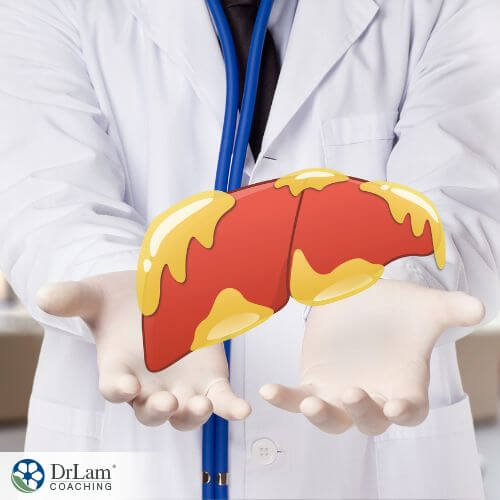 Your liver performs essential functions in your body, making it critical to your overall health. However, like other organs in your body, fat can accumulate in your liver. Small levels of fat in your liver cells are normal, but excess fat can be problematic, compromising its proper functioning. Consequently, your liver may become damaged and cause serious health issues for you. Fatty liver disease is affecting more and more people today. That's why it's important to know the signs and causes of this condition and how you can limit your risk of developing it.
Your liver performs essential functions in your body, making it critical to your overall health. However, like other organs in your body, fat can accumulate in your liver. Small levels of fat in your liver cells are normal, but excess fat can be problematic, compromising its proper functioning. Consequently, your liver may become damaged and cause serious health issues for you. Fatty liver disease is affecting more and more people today. That's why it's important to know the signs and causes of this condition and how you can limit your risk of developing it.
Fatty liver disease is a condition that results from the accumulation and storage of excess fat in the liver. It’s also referred to as steatosis. This increasingly common condition often lacks symptoms, which can prolong or make diagnosis tough. Symptoms that may appear include fatigue, enlarged liver, and discomfort in your abdomen’s upper right side. Fat above 5% to 10% of your liver’s weight is a significant problem. If you leave it untreated, it can progress to what’s referred to as nonalcoholic steatohepatitis.
Fat in liver disease in most people doesn’t automatically lead to a serious issue or stop your liver from functioning properly. However, there are some people with the condition who experience it worsening as time progresses. It happens in three stages:
Fatty liver disease can be categorized into two primary types. These are:
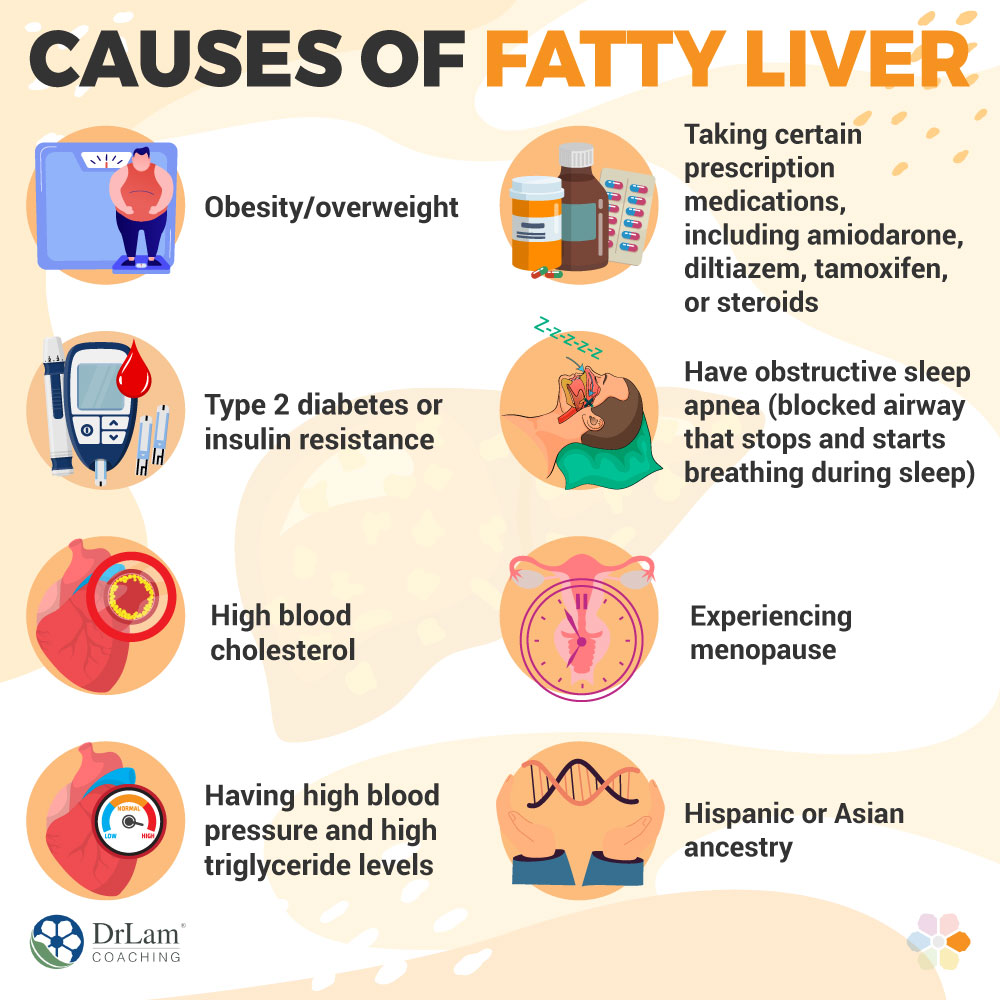
Not everyone who develops fatty liver disease has a pre-existing condition. While extra fat in your liver cells is responsible for fatty liver disease, certain risk factors can increase the likelihood of you developing the disease.
The three main causes of the condition include:
Other risk factors of the disease include:
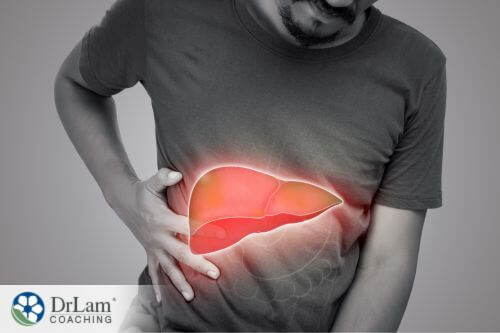 Some level of disease progression is often experienced before symptoms of fatty liver disease emerge. Your doctor may be the one who identifies that you have the condition. A blood test unrelated to the condition may show elevated levels of liver enzymes indicating that you have a fatty liver problem. It typically reaches the stage of cirrhosis of the liver before patients have symptoms. These may include:
Some level of disease progression is often experienced before symptoms of fatty liver disease emerge. Your doctor may be the one who identifies that you have the condition. A blood test unrelated to the condition may show elevated levels of liver enzymes indicating that you have a fatty liver problem. It typically reaches the stage of cirrhosis of the liver before patients have symptoms. These may include:
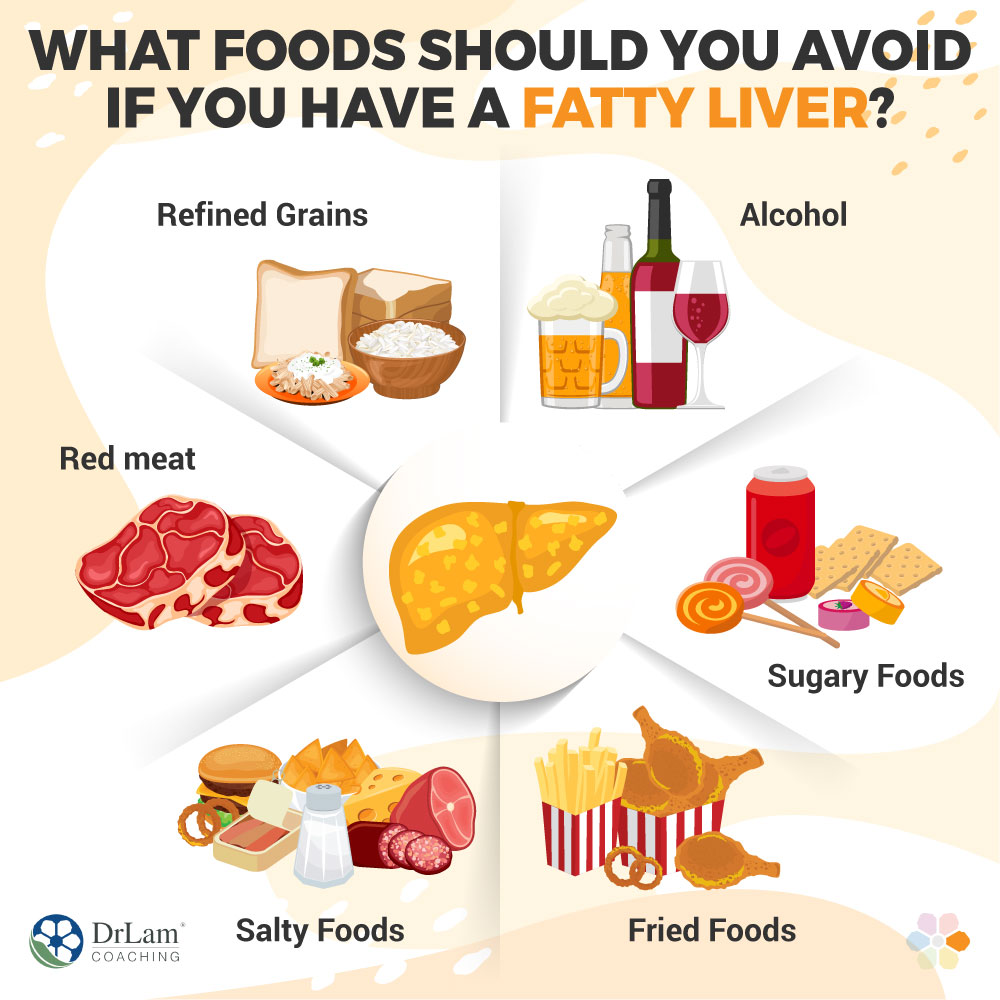
If you have fatty liver disease, your doctor may recommend that you stay away from particular foods or eat them in very small quantities. The foods that you generally want to avoid are those that can increase your weight and blood sugar. Specific foods to avoid with the condition include:
Adrenal Fatigue Syndrome (AFS) is the non-Addison's form of adrenal dysfunction, where the body's stress response cannot keep up with life's chronic stressors. This condition causes health issues throughout the body. Symptoms often appear unrelated and puzzling as the different circuits in the body go off balance. This results from the NeuroEndoMetabolic (NEM) Stress Response going into overdrive when responding to stress. When this system is active for too long, it can fatigue the adrenal glands as they attempt to keep up with the demand for the stress hormone cortisol. The consequences of this can impact your liver.
Chronic inflammation tends to increase the toxic load that the liver must release from the body, and this can cause the organ to become overworked. Furthermore, dysregulation of the detoxification circuit, which includes the liver, can occur and put it under greater strain. Also, when liver function begins to diminish or fail, this circuit can run into problems. The result can be the development of several symptoms that affect your entire body. As such, you must do all you can, with the help of your physician, to heal and support your liver.
Unfortunately, there is no cure or specific medication for fixing fatty liver disease. Doctors, in addressing the condition, focus on the management of risk factors related to the condition. Typically, it's recommended that people make lifestyle changes to help boost their health.
Helpful changes that you can make to fix fatty liver disease include:
If you have NAFLD, making weight loss a priority is important. According to an article in Current Obesity Reports, a reduction in body mass index (BMI) of 5% is associated with a 25% relative reduction in liver fat. As such, you may need to reduce your daily calorie intake by 500–1000 to achieve desirable results.
 It’s important that you participate in regular exercise, especially if you have fatty liver disease. It can help you to better manage your symptoms. Aim to get at least 150–300 minutes of moderate aerobic exercise or 75–150 minutes of vigorous exercise per week. You can choose your favorite exercise activity to do, whether it’s swimming, jogging, hiking, etc. Exercise can help you lose weight, but it also helps you to maintain a healthy weight as well.
It’s important that you participate in regular exercise, especially if you have fatty liver disease. It can help you to better manage your symptoms. Aim to get at least 150–300 minutes of moderate aerobic exercise or 75–150 minutes of vigorous exercise per week. You can choose your favorite exercise activity to do, whether it’s swimming, jogging, hiking, etc. Exercise can help you lose weight, but it also helps you to maintain a healthy weight as well.
Take steps to manage any health conditions you have, like diabetes, high blood sugar levels, high cholesterol, or high blood pressure. Be sure to talk to your doctor about medications, supplements, and lifestyle changes to help these conditions, and stick to the plan.
Improve the health of your liver and encourage detox with liver-supporting foods like beans, green vegetables, low-acid fruits, legumes, fresh dairy, and whole grains. Also, try to incorporate supplements into your diet that support liver health. Dr. Lam's LipoNano Glutathione is an advanced supplement meticulously formulated to support liver health, specifically in managing conditions such as fatty liver. Glutathione, hailed as the 'Master Recycler,' plays a pivotal role as a potent antioxidant that neutralizes free radicals and assists in detoxifying harmful chemicals prevalent in the liver. In the innovative LipoNano Glutathione, a liposomal delivery mechanism is utilized, enhancing the bioavailability of glutathione. This means that a significant portion of this crucial antioxidant is efficiently delivered to the cells, optimizing its benefits in supporting liver detoxification processes and combating oxidative stress, which is common in fatty liver conditions.
Complementing this, Dr. Lam's Fermented Liver Rebuilder is another formidable ally in supporting liver health. Primarily featuring milk thistle, a renowned herb with a longstanding reputation in promoting liver wellness and combating liver diseases, this formulation is enhanced through fermentation. The fermentation process augments milk thistle's natural liver-supporting properties, enabling the body to absorb and utilize it more effectively. It works diligently not only in the detoxification processes but also fosters optimal liver function and metabolism, essential aspects for rejuvenating and maintaining a healthy liver. However, it's imperative to heed the recommended dosing and seek advice from a healthcare provider to ascertain the suitability and precise dosage of these supplements based on individual health needs and conditions.
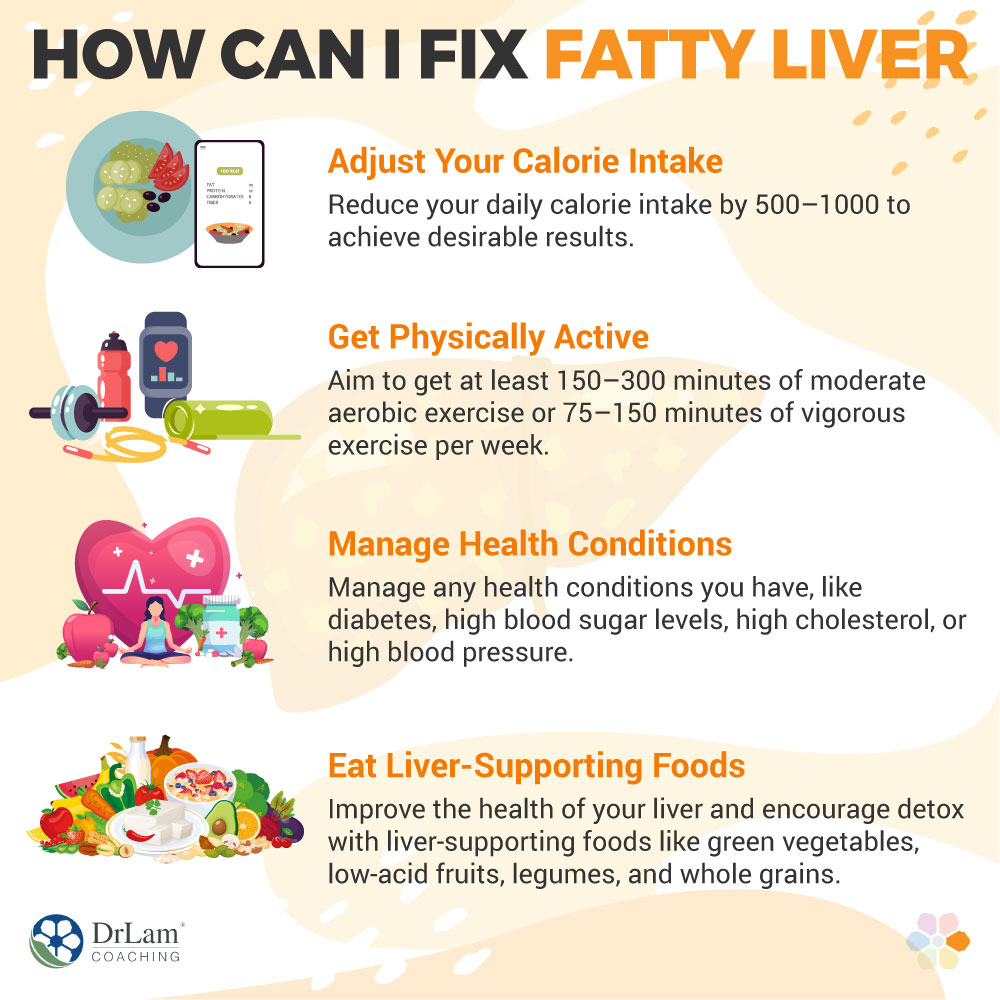
Every patient is different and tends to experience the disease differently. It’s possible for liver damage to stop or even reverse itself in some. However, in other people, the disease may continue to progress. Some patients may be able to reverse fatty liver in as little as six weeks. However, factors such as your health condition, age, genetics, diet, and treatment adherence determine how long it takes for fatty liver to heal. Maintaining your lifestyle changes is paramount in halting or reversing fatty liver.
Still, it’s important to note that the liver can repair itself. Early liver damage can be reversed if you choose to make the necessary lifestyle changes that can get you on the right track to good health. According to an article in Gastroenterology, lifestyle changes centered on diet, physical activity to achieve weight loss, and avoiding alcohol are the foundations of treatment for all patients with NAFLD.
Fatty liver disease can be avoided if you make the right lifestyle choices from the get-go. Eating a balanced diet and exercising, and in some instances, limiting your alcohol and sugar intake can help to minimize your risk of developing the condition. If you think that you may have fatty liver disease, schedule an appointment to see your doctor.
If you would like to learn more about natural ways to manage the condition, the team at Dr. Lam Coaching can help. We will attentively listen to your concerns, make careful assessments, and provide you with the guidance and care you need to improve your health.
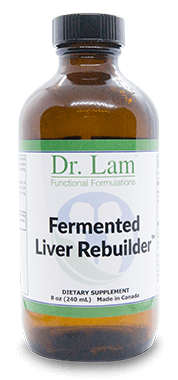
Fermented Liver Rebuilder harnesses the natural prowess of milk thistle to nurture your liver and help maintain a thriving liver function.
Brunner, Katherine T., et al. "Nonalcoholic Fatty Liver Disease and Obesity Treatment." Current Obesity Reports, vol. 8, no. 3, 2019, p. 220, https://doi.org/10.1007/s13679-019-00345-1
Pouwels, Sjaak, et al. "Non-alcoholic Fatty Liver Disease (NAFLD): A Review of Pathophysiology, Clinical Management and Effects of Weight Loss." BMC Endocrine Disorders, vol. 22, 2022, https://doi.org/10.1186/s12902-022-00980-1
Younossi, Zobair M et al. “AGA Clinical Practice Update on Lifestyle Modification Using Diet and Exercise to Achieve Weight Loss in the Management of Nonalcoholic Fatty Liver Disease: Expert Review.” Gastroenterology vol. 160,3 (2021): 912-918. https://www.sciencedirect.com/science/article/pii/S0016508520355384
Fatty liver disease is causes by obesity, diabetes, and high blood cholesterol. The best way to go about fixing your fatty liver is by making specific lifestyle changes that include eating a well-balanced diet, exercising regularly, take appropriate supplements, and sticking to the medications your doctor prescribes.


Fermented Liver Rebuilder harnesses the natural prowess of milk thistle to nurture your liver and help maintain a thriving liver function.
